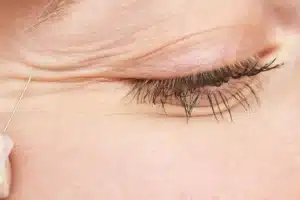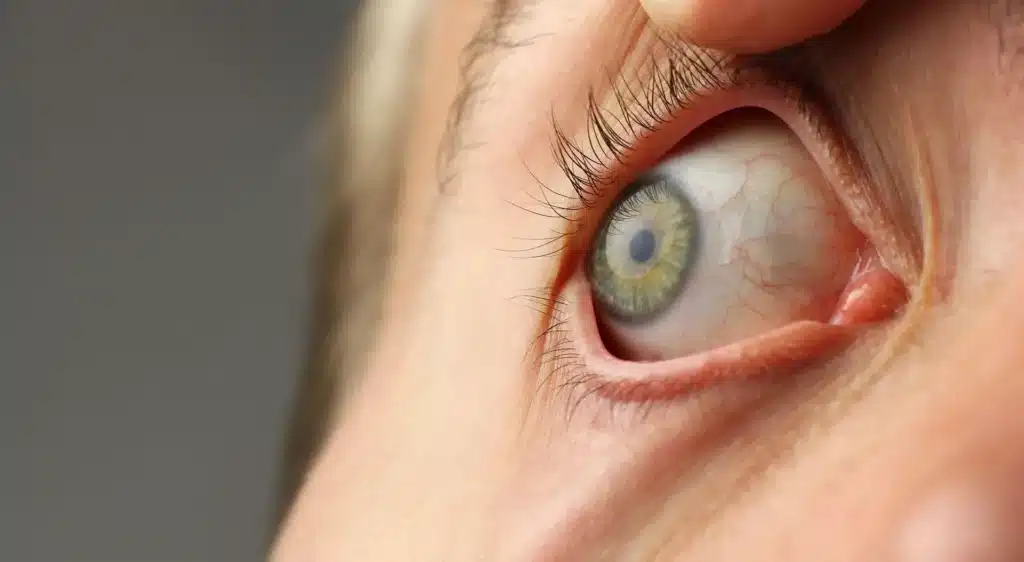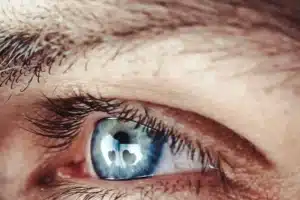The eyelids play an essential role in the health and overall function of the eyes. Along with the eyelashes, your eyelids help to protect your eyes from the outside elements – dirt, germs, debris, bacteria, sunlight, etc. – but that’s not all they do. In fact, they also play a crucial role in lubricating the surface of the eye.
It might surprise most people, but the average person blinks nearly once every five seconds. And every single time you blink, your eyes produce a tear film that covers the front surface of the eye (also known as the cornea). As you can likely imagine, this helps to lubricate, clean, smoothen, and moisten the eye.
While most of us won’t experience any issues with our eyelids, eyelashes, or tear film, others aren’t as lucky or fortunate. Any problem with the eyelid muscles and/or glands can put your eye health and/or function at risk. The good news is there are a number of treatment options available for those who need it.
Understanding the Importance of Eyelid Oil Glands
The tear film produced by the eye consists of three primary components – lipids (oil), aqueous (water), and mucins (mucus). While the lacrimal glands and conjunctiva are responsible for producing the mucus and aqueous layers, it’s the meibomian glands that are responsible for producing the oil layer.
The meibomian glands are located in the tarsal plates of the upper eyelids and lower eyelids. They produce meibum, which makes up the outer layer of the tear film. There are roughly 25 to 40 meibomian glands located in the upper lid and another 20 to 30 meibomian glands located in the lower lid.
The primary function of the tear film’s oily layer is to prevent the aqueous layer from evaporating. When the watery layer evaporates too quickly, it decreases the stability and increases the premature breakup of the tear film – which often causes dry eye syndrome. Without the oil, our eyes would dry up very quickly.
What is Meibomian Gland Dysfunction (MGD)?
As the name suggests, meibomian gland dysfunction (also known as MGD) occurs when the meibomian glands aren’t functioning properly – which is usually due to the tiny oil glands being clogged. This often results in the meibomian glands either not producing enough meibum or producing meibum of poor quality.
Symptoms might be non-existent in its earliest stages, but MGD patients will eventually experience dry eyes, red eyes, irritated eyes, eyelid inflammation, burning sensation in the eyes, watery eyes, blurry vision, and/or crusty eyelids. Either way, meibomian gland dysfunction will decrease your quality of life.
While anyone can experience MGD, research shows that the condition is more prevalent in those who are over the age of 50, those who take certain medication (hormone replacement therapy, blood thinning medication, retinoic acid, antidepressants, antihistamines, etc.), pregnant women, those who wear contact lenses, and much more.

How to Treat Clogged Oil Glands in Eyes
In order to diagnose meibomian gland dysfunction, your eye doctor might perform a number of tests to analyze the function of the glands and the quality of the oil they produce. They might also take images of the meibomian glands using the Meibox MX2 meibography or perform a tear breakup time test (TBUT).
Once diagnosed, there are a number of home remedies your eye doctor will consider to relieve symptoms – including:
- Applying a warm compress to your eyelids for roughly 5 minutes
- Gently massaging your eyelids, perhaps with a warm compress (apply light pressure)
- Using a diluted cleanser to gently scrub your eyelids
- Using over-the-counter lipid-containing emulsion drops, which can be found in any department store
- Adding omega-3 supplements and healthy fatty acid supplements to your daily nutrition plan
If the condition worsens over time, your eye doctor will recommend further treatment – which may consist of one or more of the following (depending on the cause):

Contact Milwaukee Eye Surgeons for Assistance
Are you experiencing dry eye symptoms or meibomian gland dysfunction symptoms? Are your tears evaporating too quickly? Are your eyes dry, watery, red, burning, irritated, or gritty? Are you worried that your eyes are only getting worse? If you answered ‘yes’ to any of those questions, contact Milwaukee Eye Surgeons right away.
An appointment with Dr. Kenneth Weinlander can help you take better control of your eye health and function. By diagnosing eye problems in their early stages, you can set yourself up for a successful treatment plan designed to protect and preserve your vision long-term. Schedule your appointment today!



